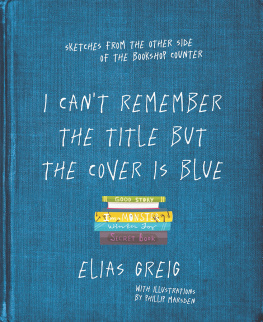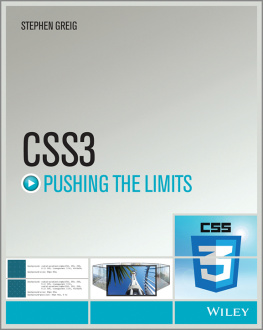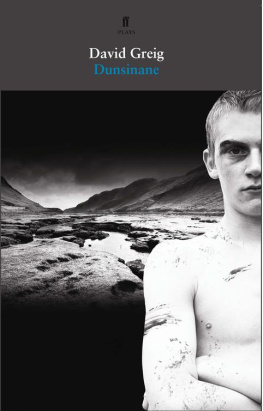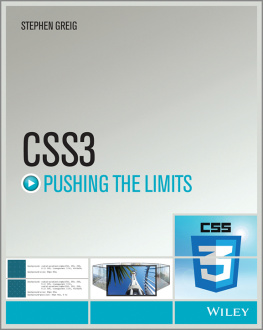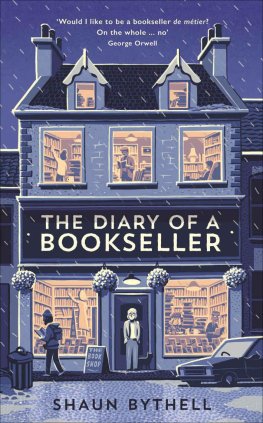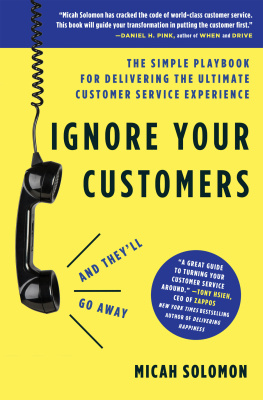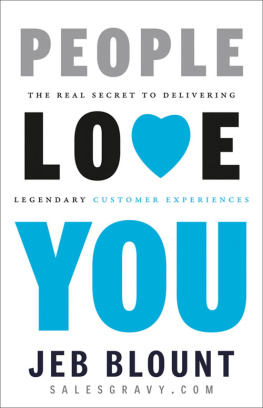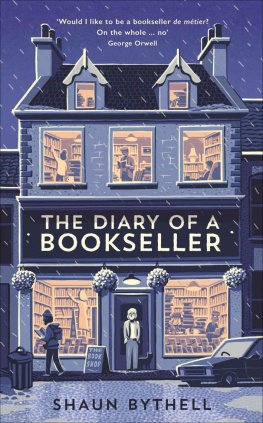First published in 2018
Copyright Elias Greig 2018
All rights reserved. No part of this book may be reproduced or transmitted in any form or by any means, electronic or mechanical, including photocopying, recording or by any information storage and retrieval system, without prior permission in writing from the publisher. The Australian Copyright Act 1968 (the Act) allows a maximum of one chapter or 10 per cent of this book, whichever is the greater, to be photocopied by any educational institution for its educational purposes provided that the educational institution (or body that administers it) has given a remuneration notice to the Copyright Agency (Australia) under the Act.
Samuel Taylor Coleridge, The Rime of the Ancyent Marinere in William Wordsworth and Samuel Taylor Coleridge, Lyrical Ballads (London: Longman, 1798).
John Keats, Ode on Indolence 1819 in Life, Letters, and Literary Remains of John Keats, ed. R.M. Milnes, vol. 2 (London: Edward Moxon, 1848).
Allen & Unwin
83 Alexander Street
Crows Nest NSW 2065
Australia
Phone: (61 2) 8425 0100
Email:
Web: www.allenandunwin.com

ISBN 978 1 76052 945 1
eISBN 978 1 76087 022 5
Illustration of books: Shutterstock
All other illustrations by Phillip Marsden
Internal design by Christa Moffitt
Set by Bookhouse, Sydney
Cover design: Christabella Designs
Cover images: Shutterstock
To all my colleagues, comrades, and co-workers, past and present.
There is one thing that stands out grossly to the eye, and respecting which there can be no dispute: I mean, the servile and contemptible arts which we so frequently see played off by the tradesman. He is so much in the habit of exhibiting a bended body, that he scarcely knows how to stand upright. Every word he utters is graced with a simper or a smile. He exhibits all the arts of the male coquette; not that he wishes his fair visitor to fall in love with his person, but that he may induce her to take off his goods. [ ] There is not a being on the face of the earth, with a heart more thoroughly purged from every remnant of the weakness of benevolence and sympathy. The sole principle of all this fair outside, is the consideration how to make the most of every one that enters his shop.
Yet this being, this supple, fawning, cringing creature, this systematic, cold-hearted liar, this being, every moment of whose existence is centred in the sordid consideration of petty gains, has the audacity to call himself a man. One half of all the human beings we meet, belong, in a higher or lower degree, to the class here delineated. In how perverted a state of society have we now been destined to exist?
WILLIAM GODWIN (17561836),
FAILED PHILOSOPHER, FAILED BOOKSELLER
This book, like most books, began life as a kind of therapy. After years of selling overpriced shoes, Id gotten what I thought would be a calm, dignified job at a bookshop on Sydneys leafy, beachy North Shore. Id just started a PhD in literature and, at last, I thought, here was a part-time job where the product I was selling was something I knew and cared about; where I might be genuinely helpful, rather than sly, enabling, and mendacious key attributes for any worker hoping to make it in Australias vast retail and service sector.
As any customer service worker will tell you, customers can be kind, thoughtful, funny, and full of pathos but also irrational, demanding, intrusive, abusive, over-disclosive, and brain-scramblingly, mind-bendingly strange. The fraught interaction between patron and worker the counter between us; the commercial imperative brooding above dims down certain inhibitions and has a hothouse effect on eccentricity. To work in customer service is to be paid (hopefully) minimum wage to remain polite in the face of rudeness, to pretend all requests are welcome and reasonable, and to encourage impulsive behaviour in hope of making a sale.
All this, I thought, would be behind me. I was on my way to a better place, a place of culture and harmless entertainment, where my colleagues and I would take turns answering what I imagined as the most difficult question wed be asked: I cant remember the title, but the cover is blue? And I wasnt alone. The special place of bookshops in the popular imagination meant that many of my friends expressed something like envy: Oh, how lovely! Ive always wanted to work in a bookshop. Bookshops were a place of comfort, a pocket universe of humanist decency only incidentally involved in the grubby business of getting and spending.
The truth is that, far from being insulated from the absurdities of retail, bookshops seem to throw them into starker relief. Our curious position as nostalgia property, cultural dispensary, and ersatz community centre means customers feel no qualms asking for help that contradicts or has nothing to do with our status as a business from free day-care (Just for an hour, theyre no trouble) to internet research (Thanks for the info, mate, Ill get it on Amazon). And while all retailers encounter angst and human misery, the nature of the product means this misery is uncomfortably explicit. In the shoe shop, certain purchases hinted at midlife crisis or divorce; in the bookshop, titles like Healing from Infidelity leave no room for doubt. Finally, as one of the few remaining places where you can spend hours without being expected to buy anything, bookshops are the natural resort of the idle, the elderly, the lonely, the romantic, and the legitimately mad.
For my own sanity, and as a small creative outlet between part-time work and a PhD thesis, I started writing up my interactions with customers. My aim was to capture something that happened to me almost every day, to put the reader in my place, feeling my trepidation and incredulity but also my sympathy, amusement, and delight. This book isnt or shouldnt be a simple record of misanthropy and spleen. Rather, its a collection of weird, sometimes appalling, sometimes touching, and hopefully funny anecdotes about our bizarre historical moment: to listen to customers in a bookshop is to hear the Zeitgeist come roaring out like the Devil at an exorcism. Its a record of what the placing of a counter between people does to us, at a time when the consumer is replacing the citizen as societys basic political unit, and service culture looks set to conquer the world.
If nothing else, I hope these pieces remind readers that the person on the other side of the counter inhabits their own life just as fully. You might be curious to know what we see particularly since what we see is you.
Elias Greig, 2018
Buff gym-goer with a gym bag over his shoulder, sucking liquid breakfast drink through a straw, taps on the door before opening time. I let him in.
Buff Suckler: Mate, Im switching to the iPad. Its just better.
Me: Right. How can I help?
Buff Suckler: Do you do second-hand books? Ive got piles of em theyre not in very good nick and theyre probably not worth anything, but Im looking for somewhere to dump em. I wouldnt want much for em. *pauses to slurp through straw* Would you be interested?
Me: Not really, no.
Buff Suckler:*narrows eyes; suckles* Why not?
Me: Well, for all the reasons you just said.
Buff Suckler: Fair enough. Do you have sex tips? *straw slurp*


